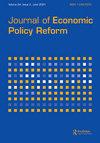评注:关于重新公有化的范例间对话的危险与希望
IF 3.2
3区 经济学
Q1 DEVELOPMENT STUDIES
引用次数: 5
摘要
范式间对话的许多认识论危险源于思想流派之间的本体论分歧。然而,看穿这些文化障碍确实提供了跨范式学习的希望。本文旨在提出抓住跨范式思想的竞争、模仿、同化和再生带来的学习机会的一些基本条件。它是通过考察非正统和新制度的再公有化传统之间的初步对话来做到这一点的。这些传统在重新公有化作为反向私有化的性质和社会影响方面存在分歧。因此,我们确定了富有成效的范式间对话的三个基本属性:反思性是思想流派内部和跨学派的批判性和自我批判性探究的主观倾向;内在批判是对思想学派成员的信念和意图与其智力实践之间的一致性的探究;并且,递归性是通过持续的范式间对话来扩展学习机会的持久性。本文章由计算机程序翻译,如有差异,请以英文原文为准。
Commentary: the perils and promise of inter-paradigmatic dialogues on remunicipalisation
ABSTRACT Many epistemological perils of inter-paradigmatic dialogues originate from the ontological divides between schools of thought. Seeing through these cultural barriers does however offer the promise of inter-paradigmatic learning. This paper aims to suggest some basic conditions for seizing the learning opportunities that come from the competition, emulation, assimilation and regeneration of ideas across paradigms. It does so by looking at the case of the incipient dialogue between the heterodox and neoinstitutional traditions of remunicipalisation. These traditions diverge over the nature and societal implications of remunicipalisation as reverse privatisation. We thus identify three fundamental attributes of fruitful inter-paradigmatic dialogues: reflexivity as subjective predisposition to critical and self-critical inquiry within and across schools of thought; immanent critique as inquiry of the consistency between the beliefs and intentions held by the members of a school of thought and their intellectual practices; and, recursiveness as persistence in expanding learning opportunities through sustained inter-paradigmatic dialogue.
求助全文
通过发布文献求助,成功后即可免费获取论文全文。
去求助
来源期刊

Journal of Economic Policy Reform
Multiple-
CiteScore
6.60
自引率
0.00%
发文量
14
期刊介绍:
The Journal of Economic Policy Reform focuses on the analysis of economic policy reform. The journal draws upon what lessons can be learned from the successes and failures of countries undertaking reforms and how existing theories can be developed to shed light on positive as well as normative aspects of the reform process. The Journal of Economic Policy Reform encourages work from economists and political economy analysts on policies to promote growth and reduce poverty, intellectual property rights, aid versus trade, debt and debt relief, taxation and social security systems, surveys of key reform issues, as well as on corruption, democracy, emerging markets and the role of multilateral institutions.
 求助内容:
求助内容: 应助结果提醒方式:
应助结果提醒方式:


